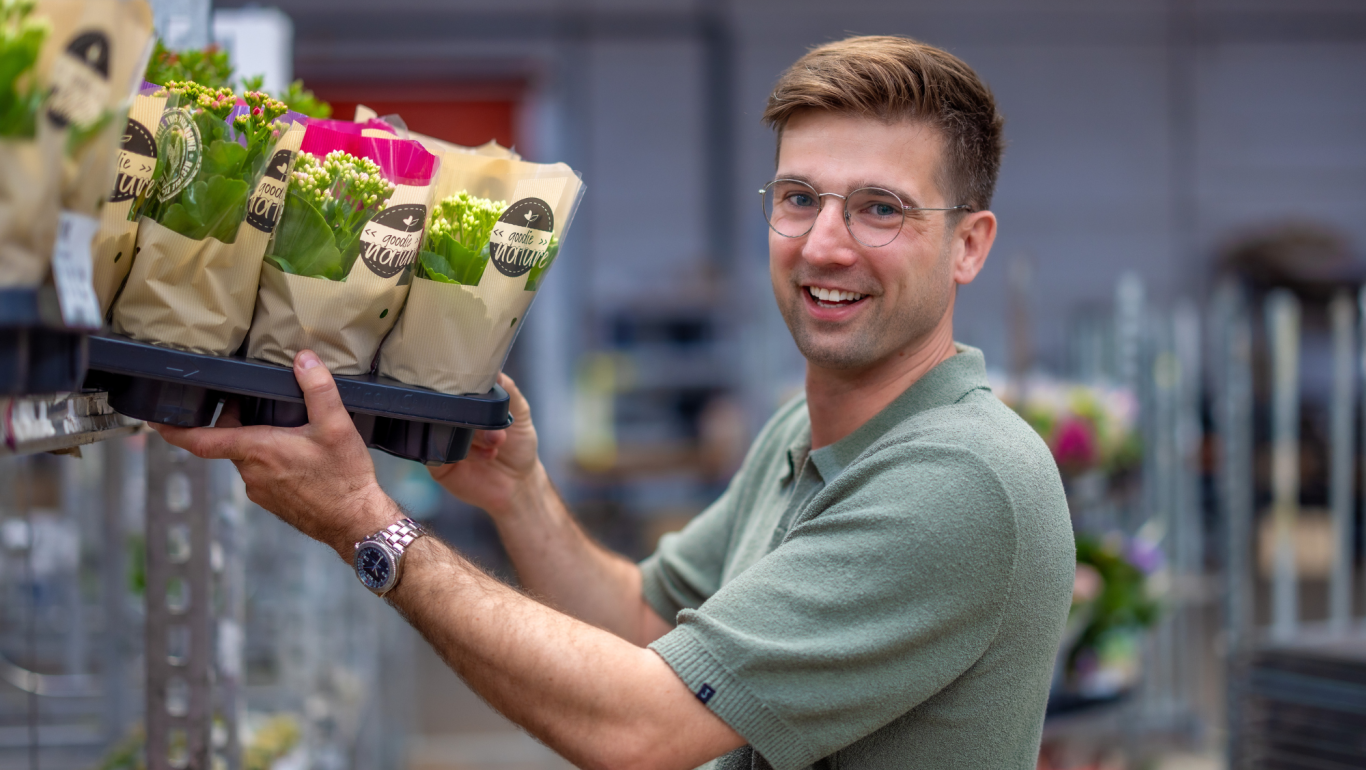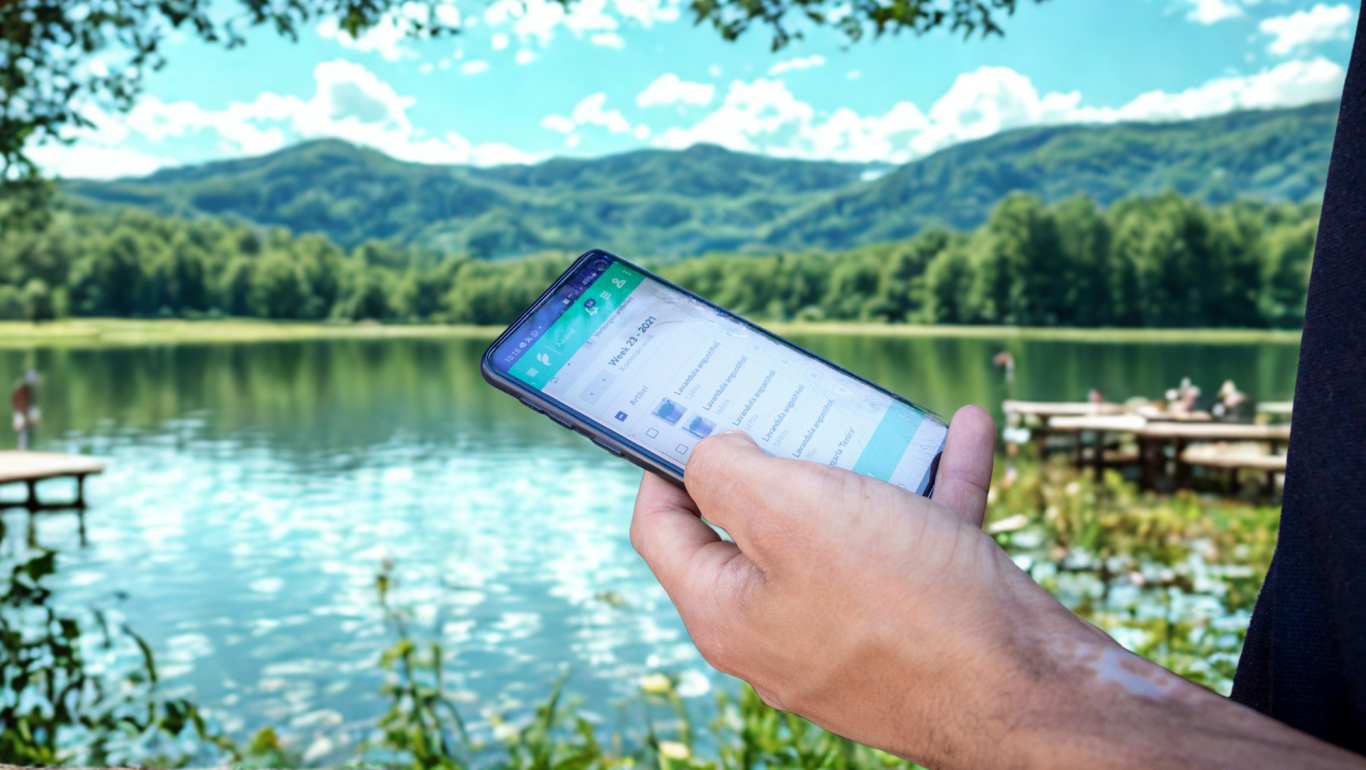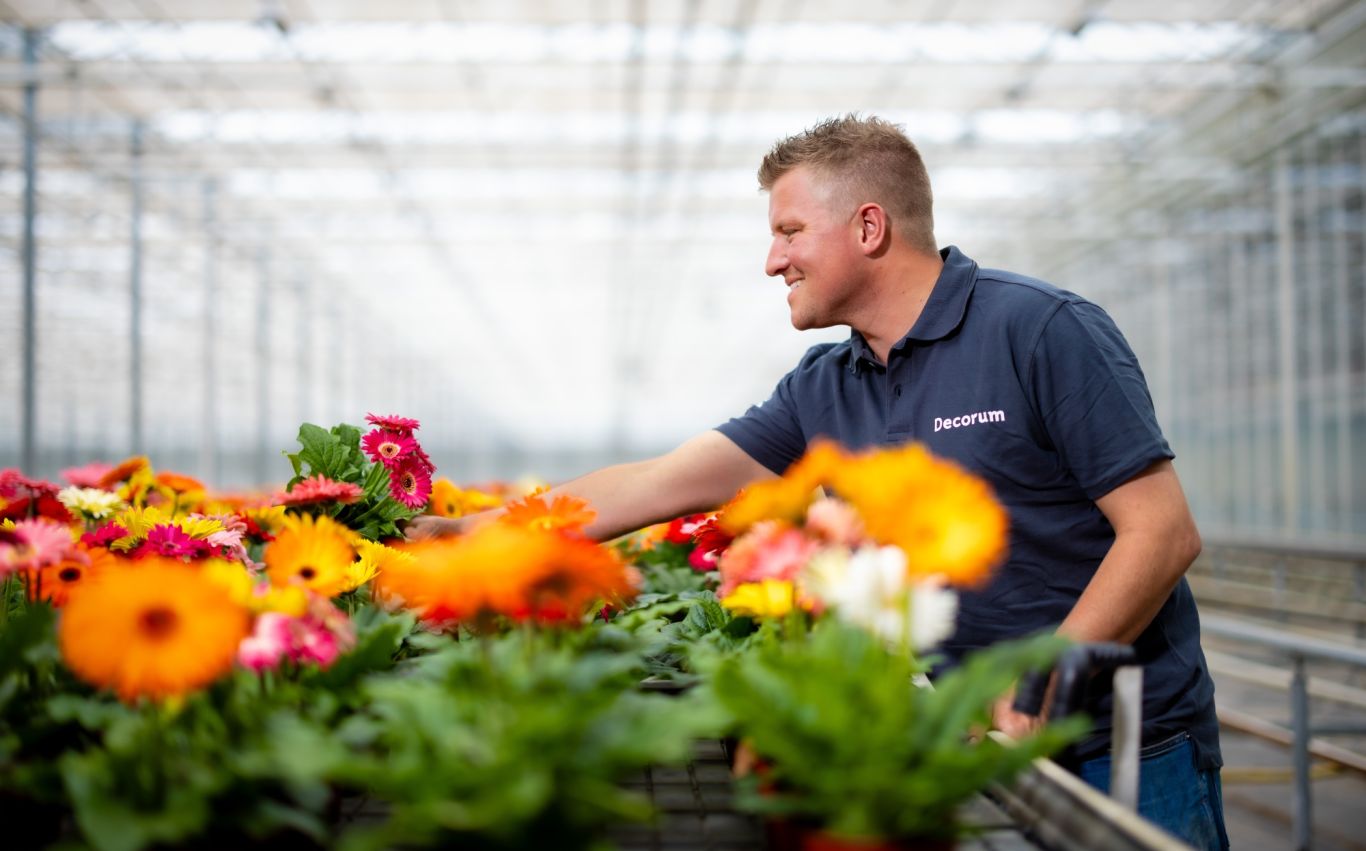There is work to be done
November 27, 2023

The Public Affairs department represents the interests of Royal FloraHolland, its members and the floriculture sector in society, the media and politics. Public Affairs manager Stefanie Miltenburg explains the two major transitions the sector is facing and the impact of the coalition formation after the Dutch elections.
The Dutch elections are behind us. The coming period of coalition building will determine many of the tasks facing our sector. In this column, I would like to highlight two where we still need to put our shoulders to the wheel.The energy transition
Rabobank shared its policy for the various transitions in (greenhouse) horticulture at the Energy Transition College for Glasshouse Horticulture, where Royal FloraHolland is represented along with many other parties. Such as there are: climate and energy, labor market and crop protection. It was particularly interesting to hear how they are concretely contributing to the energy transition, with the goal of a climate-neutral sector in 2040.
As a bank, they do several things. They help steer the regional transition strategies, carry out projects and offer suitable financing products that give substance to the transitions. They also pursue an appropriate financing policy, focused on sustainability and financial performance. In order to make sustainability performance uniformly measurable, they developed their own footprint tool. By the end of next year, they aim to have a picture of 900 customers and their emissions. The results will help them enter into discussions with entrepreneurs about sustainability and what the most appropriate options are for them.
What stood out in Rabobank's roadmap to climate-neutral 2040 is that from 2024 they will no longer finance any new greenhouse that cannot be climate-neutral (in 2040), that an energy transition plan will be required with every loan application and that from 2025 they will no longer finance any CHP (combined heat and power) that cannot switch to hydrogen. Oil and propane CHPs will not be financed anyway.
Rabobank pursues this policy to prevent CO2 pricing and tax measures from leaving no prospects for their customers and themselves as a bank.
Water
Water is another focal point for our sector. The European Water Framework Directive (WFD) contains the policy for assessing the quality of surface and groundwater in Europe. It also provides the basis for water management that helps us prepare for climate change (drought and flooding). The WFD came into force in 2000 and the goal was for all European waters to achieve "good status" by 2015. This deadline has since been extended to 2027.
In May of this year, the Council for the Environment and Infrastructure announced that the Netherlands is dangling at the bottom as a European member state when it comes to water quality. It also concluded that with the current government policy, the targets will not be met in 2027 and there is a threat of fines from the EU. There is a chance that activities could be shut down. Floriculture is one of the sectors that still causes pollution, due to the emission of fertilizers and plant protection products. Although many steps and efforts have already been made, this is certainly not enough. From an initiative of the Greenports Netherlands, RFH, together with chain parties, is actively contributing to improving the situation.
A new administration will certainly set accents or adjust things in sustainability policy as well. But the goals for the major transitions mentioned above will remain. So work to do, for us, for you, for the entire sector.
Do you have questions or would you like more information on this topic? Then email publicaffairs@royalfloraholland.com.
-
Did you find this interesting?
Then share this article


